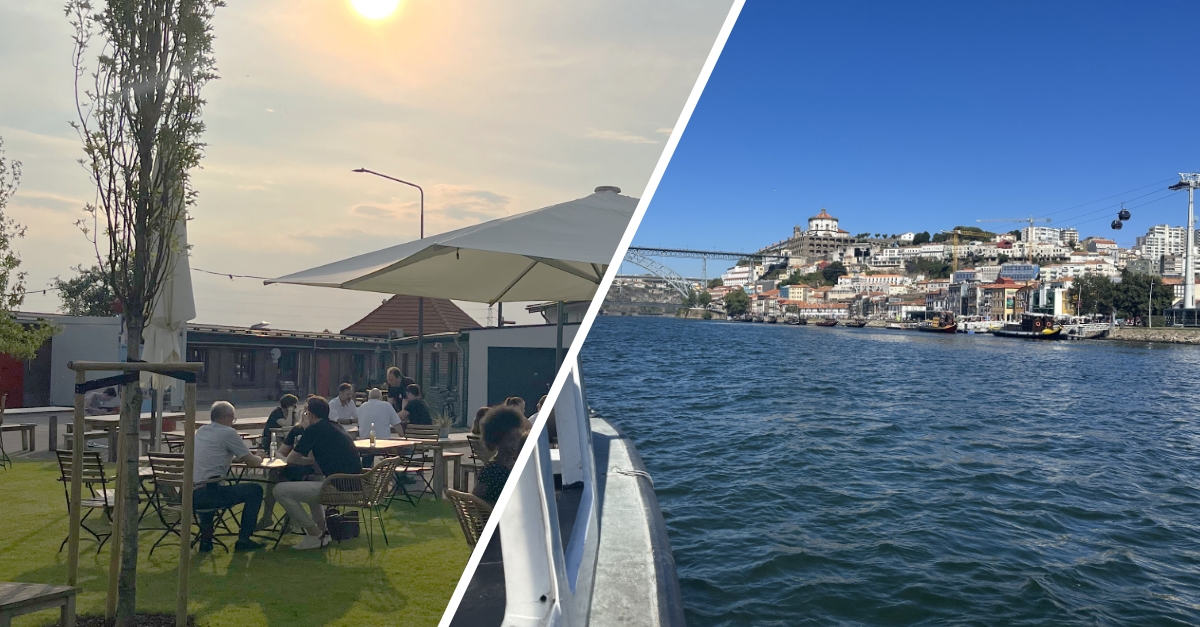Global trade continues to develop: larger ships and increasing freight volumes are forcing even the largest harbours to constantly innovate. The European Commission assumes that cargo handling in EU ports will increase by 50 % by 2030.
To meet existing and future requirements, many seaports are focusing on comprehensive digitalisation, including improving the real-time tracking of goods, data and process transparency in container handling and the efficiency of traffic flows.
Efficiency optimisation in the maritime sector: supply chain ecosystem & objectives
When introducing new technologies in seaports, it is crucial that they improve the efficiency of the entire supply chain ecosystem, from port and container terminal operators to shipping companies, logistics, rail and trucking companies and cargo owners. The ecosystem is essentially driven by two central objectives for process optimisation:
- Increase capacity, improve volume and productivity for cargo and container handling
- Reduce costs along the supply chain, e.g. operating costs for operators and logistics costs for freight owners
67% of port operators see the reduction of operating costs as their priority, but the reduction of handling costs, for example, places different demands on process optimisation than storage and land transport management. For port operators, both freight and container handling and the associated intermodal transport are among the key areas of their digitalisation.
Improved speed through automation - intelligent goods handling & remote control

To improve handling, precise coordination of loading and unloading, real-time freight tracking and the automation and acceleration of tasks in the port area with IoT, AI and robotics are becoming increasingly important for seaports:
- An integrated platform, AI-supported resource management systems or a digital twin can map information on locations, status, ship arrival times, container weights, pick-up times, transport instructions and energy consumption. They help to recognise operational bottlenecks and react immediately, reduce idle times and lower energy consumption.
- Autonomous industrial vehicles can ensure safe and intelligent driving manoeuvres across the entire site and reduce idle times.
- Remote control of ship loaders and vehicles can save a considerable amount of time and enable parallel tasks to be carried out.
- Digital scales for lorries, including weighing devices on wheel loaders and forklift trucks, can help increase efficiency.
- Real-time tracking of warehouse quantities and the use of drones for inventory monitoring and measurement of goods and materials can improve transparency and cost efficiency.
System integration & real-time coordination - integrated transport management

The efficiency of intermodal transport also benefits from automated and digitalised processes in ports. The real-time tracking of goods movements and information about traffic in ports, e.g. the automatic identification of lorries as they pass through port or terminal gates, are further decisive optimisation options here.
In addition, seamless communication and real-time data exchange within the supply chain contribute to synchronised operational planning and better visibility and coordination by sea, rail and road. An integrated and centralised control system with a visualisation of delays, deviations and problems can promote proactive transport management.
For example, by integrating transport management with warehouse and inventory systems, goods movements can be synchronised with stock levels to ensure that goods are available when needed and that storage space is used efficiently.
Practical examples of digital technologies and solutions in port operations
COCUS has already successfully implemented the third private 5G network at seaports. The network, which is tailored to port locations, offers numerous advantages for improving handling speed and dynamic process and transport planning for ports.
The use cases implemented by COCUS include the digitalisation and remote control of weighing processes, the automation of swap body transport and the real-time monitoring of bulk goods using industrial drones. Further specific use cases can be implemented to increase security and control at ports; we present the most important ones here: Automation, Remote Monitoring & Maintenance in Smart Ports
In addition, a logistics company benefits from the saving of over 80% of manual planning tasks thanks to an automation solution from COCUS for calculating loading and capacity strategies for goods trains using machine learning and the combination of data and timetables.
How to realise digital harbours: private 5G network & digital solutions
Advanced technologies such as industrial private 5G networks offer ports long-term flexibility. In combination with digital solutions, they enable a broad, customisable and flexible range of smart port applications so that ports can benefit from improved speed, efficiency and coordination in cargo handling.
However, according to research by McKinsey, 75% of port operators with experience in automation believe there is a skills gap to develop digital ports. COCUS has therefore been supporting the implementation of private 5G networks and 5G-based use cases at seaports for many years and, with over 20 years of IT experience, develops customised digitalisation solutions for ports and container terminals.



